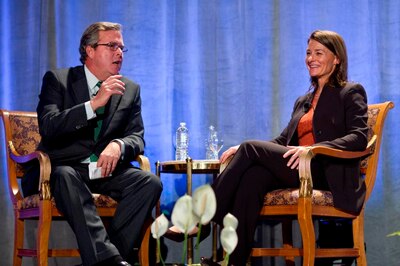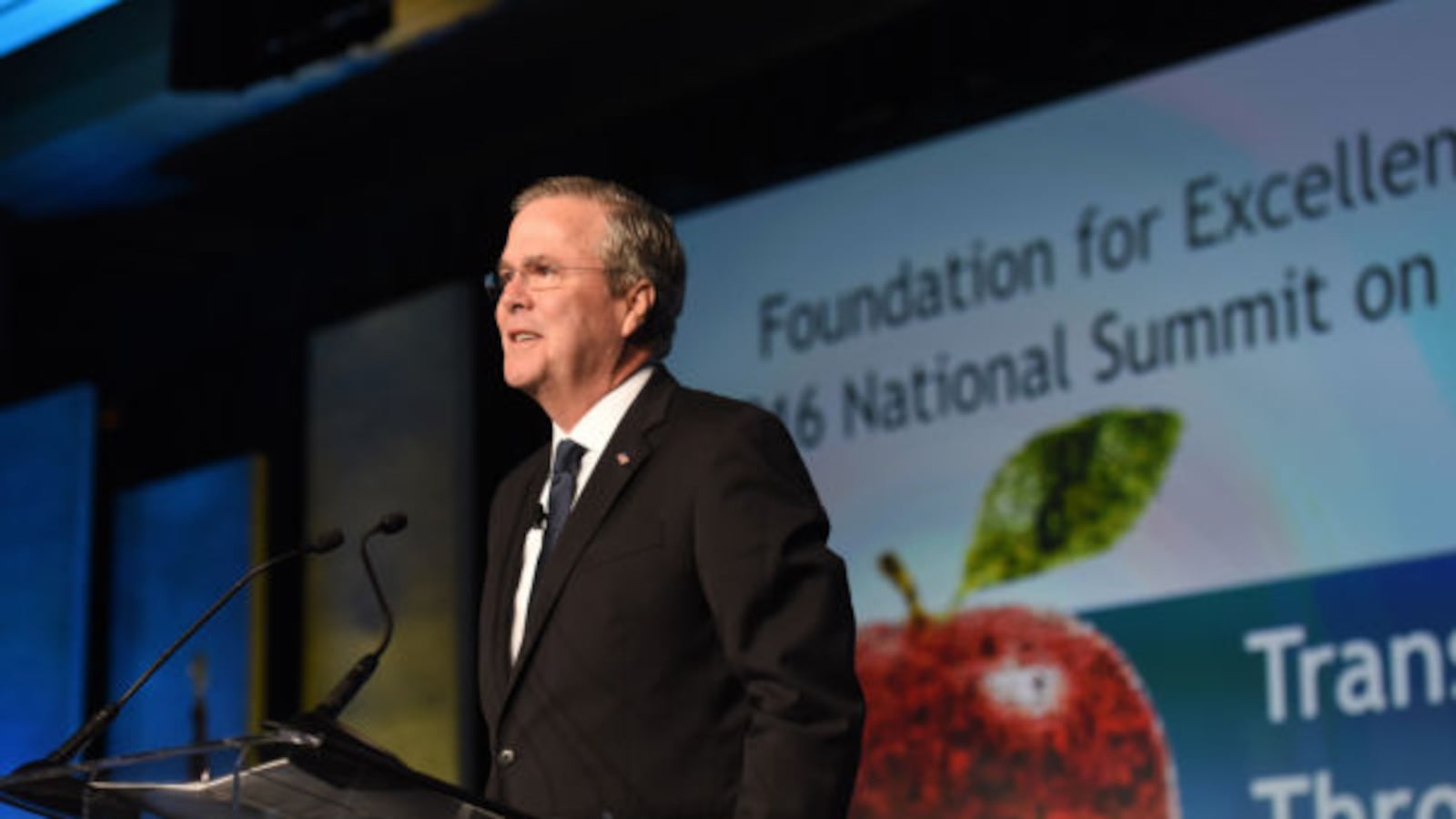When former Florida Gov. Jeb Bush hosted his first education reform summit in Orlando in 2008, he compared the U.S. school system to an 8-track tape in an iPod world.
“The irony is that we’re still a 8-track education system, but the iPod is gone,” Bush said as he prepared to host his foundation’s 10th annual summit this week in Nashville. “The world is moving far faster than people can imagine, and our education system is really mired in the old way of thinking.”
Since leaving the governor’s office in 2007, Bush and his Foundation for Excellence in Education have encouraged other states to adopt the policies he pushed to disrupt the status quo in Florida, including a “school choice” agenda that’s friendly to charter and virtual schools and to using public money to pay for tuition at private and church-run schools through programs like vouchers and tax credits.
On Thursday, Bush will introduce a keynote address by the nation’s most prominent “school choice” advocate, U.S. Secretary of Education Betsy DeVos. A long-time friend and former member of the foundation’s board, DeVos was championed by Bush to lead the education department under President Donald Trump.
“I’m a big Betsy DeVos fan,” Bush told Chalkbeat in a recent interview. “I think she’s been the best advocate for school choice of moving to a parent-centered system of any secretary ever.”
The Nashville gathering of some 1,100 reform-minded players comes as efforts to reengineer education as a consumer choice have buoyed under the Trump administration, even as new data has called the movement’s primary vehicles into question.
Recent studies in Louisiana, Indiana, Ohio and Washington, D.C., show that student achievement drops, at least initially, when students use vouchers to attend private school.
Charter schools have fallen substantially in popularity among both Democrats and Republicans, according to a 2017 poll by choice-friendly Education Next.
And some virtual schools in Indiana, Colorado and Pennsylvania have been called out recently for low rates of student log-in and graduation, in addition to poor scores. (The nation’s largest operator of virtual charters, K12, is among the summit’s sponsors.)
Bush cites the “highly charged political environment” for the slump in charter cheering, and he questions the validity of the voucher research.
“I’m not a psychometrician or a statistician, but I don’t think that the scale of the studies is enough to warrant great praise if they’re good for vouchers or great criticism if they’re not,” he said. “The next iteration of studies needs to go deeper.”

He’s promoting other reforms too, even as the effectiveness of his own Florida agenda is still being debated. His foundation, known as ExcelinEd for short, advocates for new teaching approaches like personalized learning, policy shifts such as emphasizing early literacy, and accountability programs like assigning A-F letter grades to schools based on test scores.
Ultimately, Bush said, student learning should be at the center of each decision, and “we need to significantly pick up the pace of reform.”
“I’m really worried,” he said of the clash between the schools of today and the jobs of tomorrow. He cites the growing number of students having to take remedial coursework in college, while advancements in technology, science and artificial intelligence are accelerating.
“I don’t think anybody can define what the world will look like eventually for a kindergartener who’s just starting out on their education journey,” Bush said. “But you’ve got to assume that, given the convergence of all these explosive technologies, the world of work is going to be radically different than it is now, and yet we’re not radically changing how we educate or train people for that future.”

